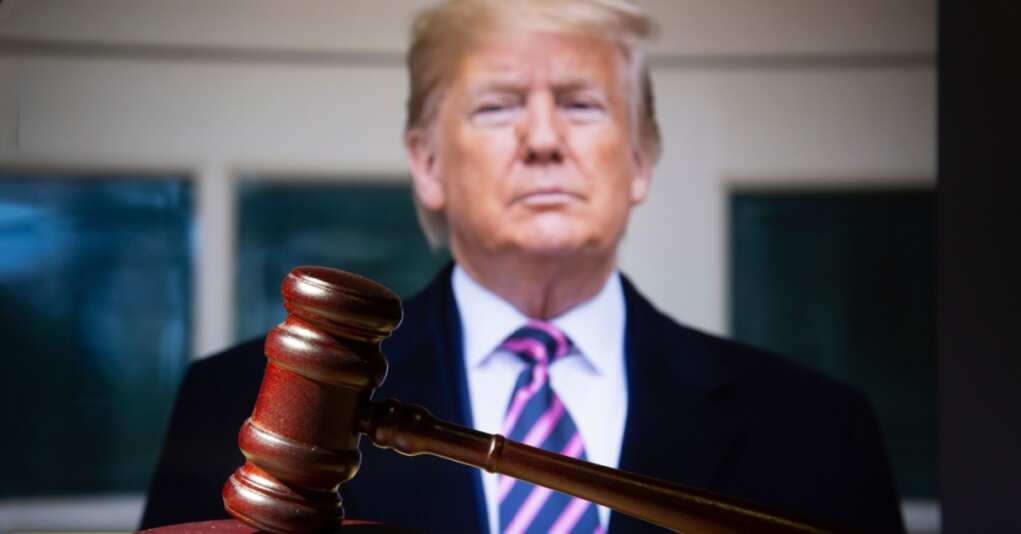Dems Losing Their Chance to Influence Voters Through Weaponized Prosecutions

Has the weaponized DOJ finally run out of steam in its no-holds-barred attack on former President Donald Trump? With US District Judge Aileen Cannon’s recent decision to dismiss the classified documents case, Special Prosecutor Jack Smith and his cronies are running out of ammunition.
Dems were resting their hopes on a conviction in the “election interference” case they had plotted against him, but now that seems to be off track as well. According to sources, Smith has decided not to ask for an extensive hearing to show evidence in the case before the election on November 5.
According to unnamed sources, Smith and his team are still working on the case against Trump but won’t go to a jury trial before the election. This is because of last month’s Supreme Court decision, which said Trump has some protection from criminal charges from his time as president.
It’s now unlikely there will be a smaller trial with evidence and testimonies from witnesses like former Vice President Mike Pence before the presidential election. Dems are disappointed in Smith’s decision because it was the last way for them to stack the deck against Trump.
Brandon Van Grack, a former federal prosecutor, said the charges are already known. He complains that while it “makes sense” that the department and the public “want to settle these issues” before the election, it’s impossible now.
If Kamala Harris wins the election, Smith could still prosecute Trump.
One year ago, Smith charged Trump in Washington with trying to defraud the US and block the certification of the 2020 election. Smith also filed a different case in Florida against Trump for mishandling classified documents and obstructing justice. Last month, US District Judge Aileen Cannon threw out that Florida case, saying it was unconstitutional.
According to Mary McCord, a former federal prosecutor, Smith might not want to show important evidence or witnesses in the election interference case because doing so could hurt his chances of winning at a future trial. She also mentioned that Smith and other Justice Department leaders don’t want to seem “too political.”
The Supreme Court’s ruling said that former presidents are mostly protected from being charged for actions related to their official duties but not for their private actions. District Judge Tanya Chutkan, who is handling the “election interference” case in Washington, was expected to hold hearings before the fall to determine which actions are considered official and can’t be charged and which are private and can still be prosecuted.
After the Supreme Court’s ruling, Smith is concentrating on making the strongest case possible to convince a jury to find Trump guilty. He is focusing on presenting the “evidence” in a way that will stand up if it gets appealed and sets a solid legal example.
Smith’s team and Trump’s lawyers are set to submit their plans on August 30 for moving forward before a hearing with Judge Chutkan on September 5.
Separately, Trump is trying to delay his sentencing scheduled for September 18 in a New York case over hush-money payments. He argues that it’s an attempt to interfere with the election. Trump could face up to four years in prison for 34 felony charges of falsifying business records to hide paying adult film star Stormy Daniels in a nondisclosure agreement ahead of the 2016 election.
Earlier this year, Smith worked to advance the case, asking the Supreme Court in April to quickly decide whether former presidents have immunity. He seemed to want a verdict before the election.
But that decision didn’t go the way he wanted it to. After the Supreme Court’s July 1 ruling that former presidents are protected from being charged for official actions while in office, Smith has to change the charges against Trump or possibly create a new indictment.
Rabid Trump-hater Chutkan could decide to hold a hearing before the election, but it’s more likely she’ll try to find a balanced approach to figure out what can and can’t be charged.
Mary McCord, from Georgetown Law School, said that if there’s a way to focus on fewer issues that both the government and Trump’s team might agree on, it would be better for everyone. She said that pathway would avoid some of the “tricky issues.”
While this seems to be a win for Trump, he still faces sentencing from Judge Juan Merchan on September 18. Experts think Merchan will not push for jail time, but that may be the only way Democrats can ensure a Harris victory for 2024.
As the election nears, Team Harris focuses on the only “conviction” from the flurry of lawfare strategies that stuck.
And most voters no longer care.

